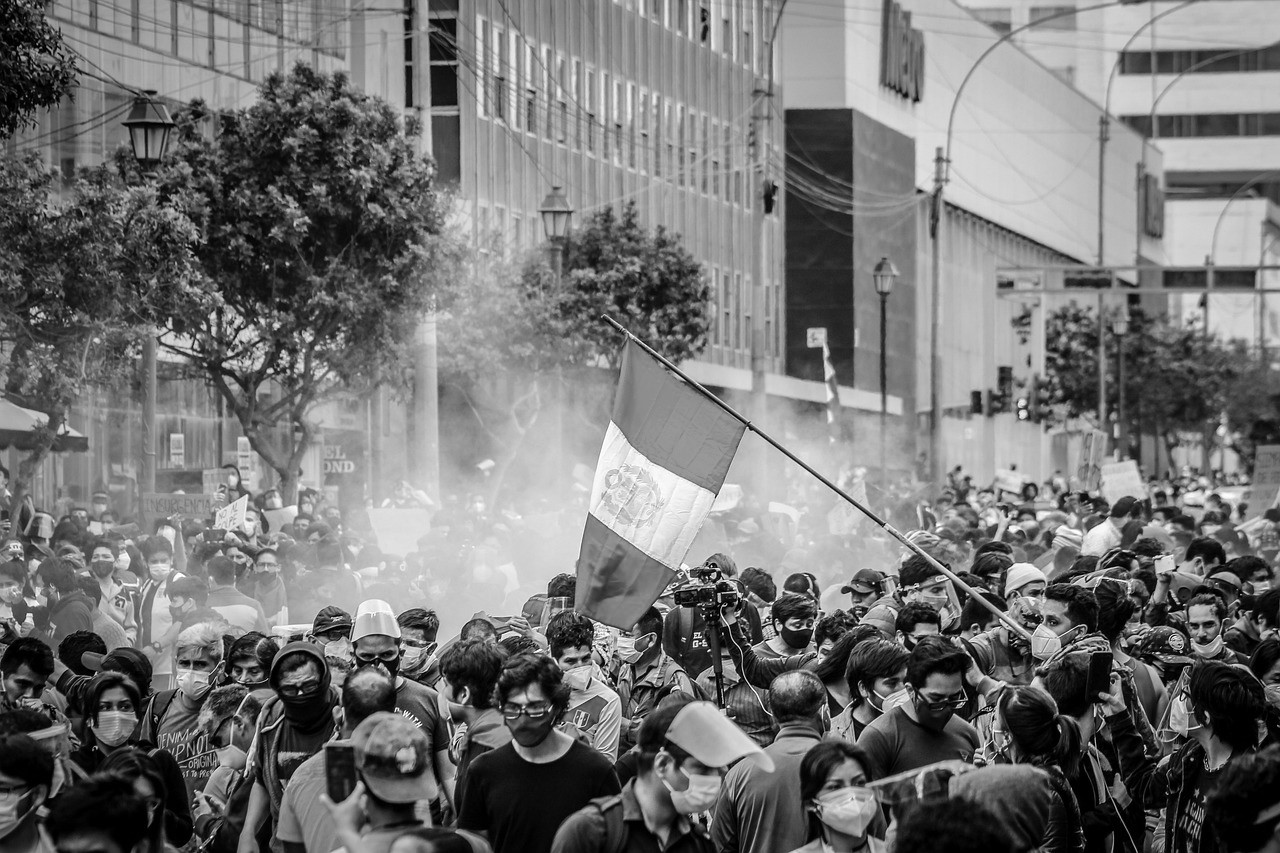
In December 2022, following the dismissal and arrest of President Pedro Castillo, a trade union leader from a progressive, small farmer background, Peru saw its historical divisions – ethnic, cultural, geographical and social – reappear with unprecedented violence. The socio-political crisis has been met with violent repression and systematic human rights violations that characterize the daily experience of social protest. CETIM has been involved in activating the UN mechanisms and bodies so that they can closely follow the crisis and provide a place for the victims of violence and for social movements fighting for social justice, to present their grievances.
From December 7, 2022, massive demonstrations against the Peruvian provisional government took place in streets all over the country, initiated and led mainly by trade unions, small farmer and indigenous organizations. Government repression of the mobilization caused at least 60 deaths, countless injuries, disappearances, arbitrary detentions… Note however, that the demonstrations were for the most part peaceful and focussed on legitimate demands: the return of the democratic institutional order, the resignation of the de facto President, the convening of a free and sovereign Constituent Assembly, as well as justice and reparations for the relatives of those murdered.
In order to address this problem, CETIM initiated joint work with Peruvian social movements to take their case to the UN authorities. In January 2023, indigenous-peasant leader Lourdes Huanca, founder and president of the Federacion Nacional de Mujeres Campesinas, Artesanas, Indigenas y Asalariadas del Peru (FENMUCARINAP), travelled to Geneva as part of a European tour aimed at denouncing the brutality of the Peruvian government and demanding justice. A whole series of activities and meetings were organised, offering Lourdes Huanca the possibility of addressing the UN to show how the national judicial system had been blocked and to request the activation of UN mechanisms, as an alternative recourse to confront the influence of the executive power on the Peruvian legal system.
As several UN human rights mechanisms (in particular the UN special procedures) indicated their concern about the situation in the country, CETIM, FENMUCARINAP, the Red Whipalas and the Geneva association Quinto Suyo – Peru developed and submitted a complaint addressed to the UN mechanisms that are specialized in the situation of human rights defenders, extra-judicial executions, freedom of association and peaceful assembly, the rights of indigenous peoples, and contemporary forms of racism and violence against women.
This action has borne fruit, since the mechanisms cited above have challenged the Peruvian government to answer for the violations that were denounced. See the communication in Spanish.
In May 2023, the Peruvian government responded at length to the communication in Spanish.
The response is currently being analysed by our organisations. In the event of an unsatisfactory and/or partial response, or a response that does not address the claims in terms of access to reparation, justice and guarantees of non-repetition, we will re-start the process with the special procedures. Human rights violations must not go unpunished.
The situation in the country remains alarming. With the judicial system under the control of the executive, access to justice remains blocked, and the repression of social movements continues. Meanwhile, the political clique in power, the one most linked to the business community, is taking advantage of the crisis to advance the predatory neoliberal agenda for the benefit of transnational corporations (TNCs). Thus, new concessions for the exploitation of the country’s natural resources are being rapidly negotiated and delivered to the TNCs. Moreover, a new bill currently being discussed in parliament aims to repeal the few laws that protect the rights of indigenous peoples, with the clear aim of delivering the wealth of their ancestral territories to transnational corporations.